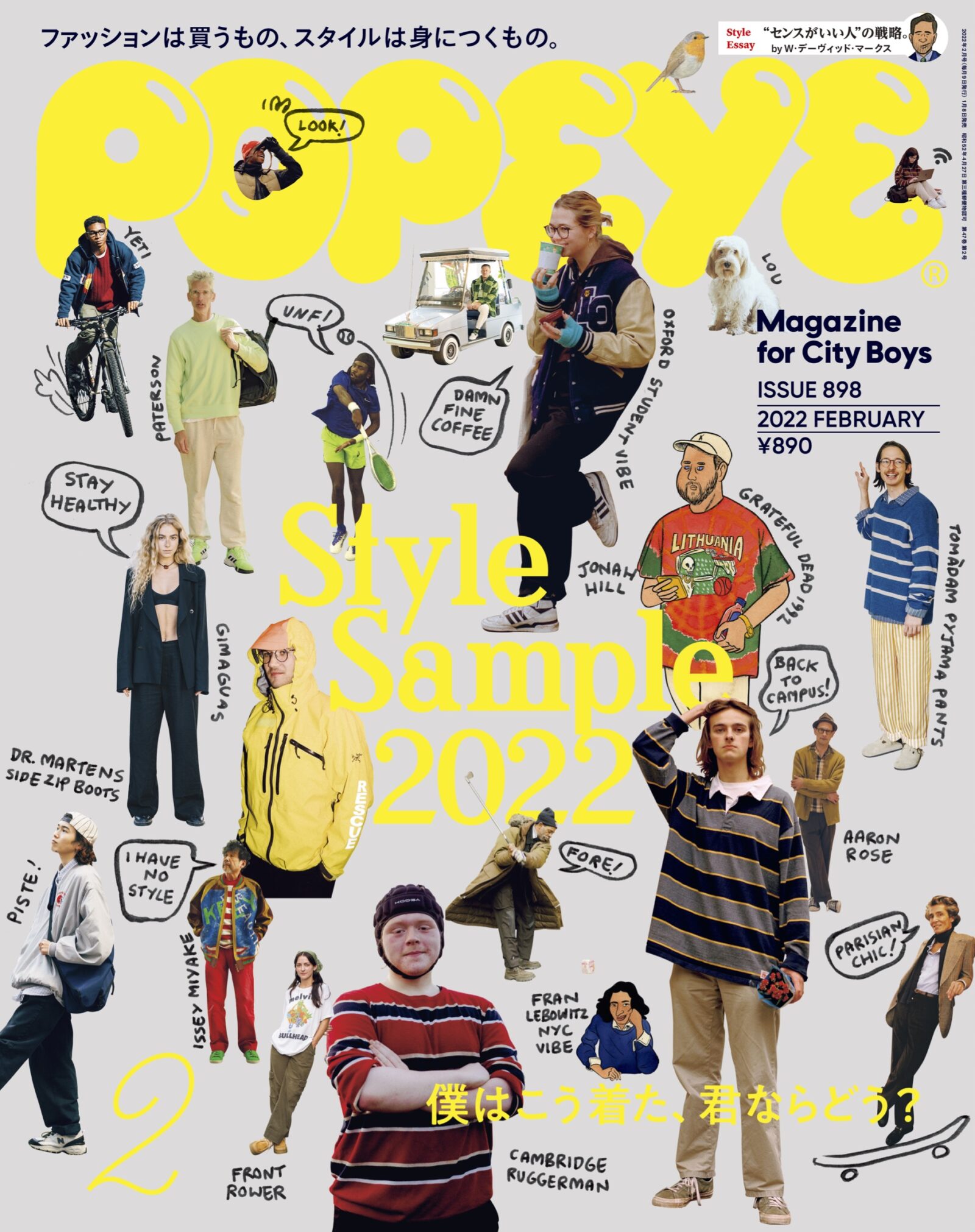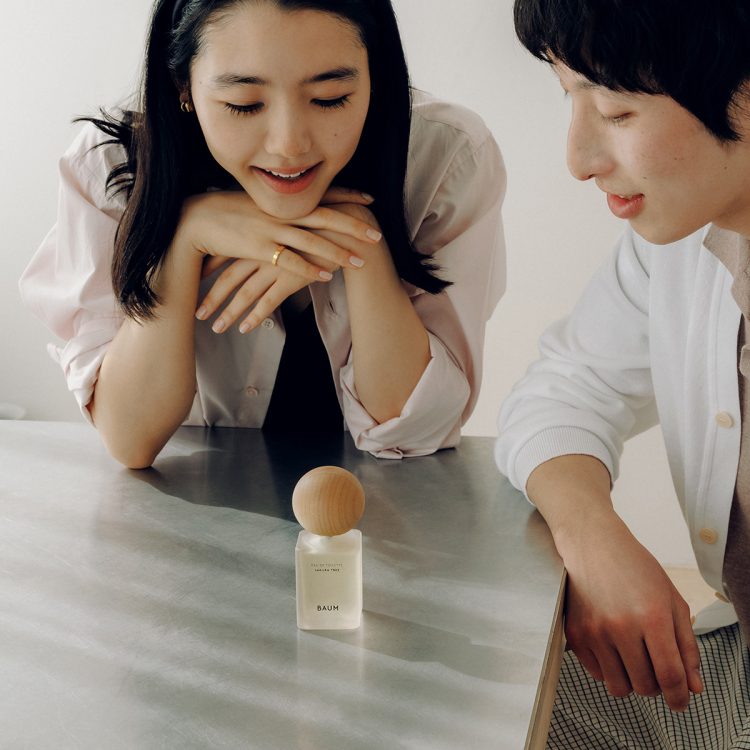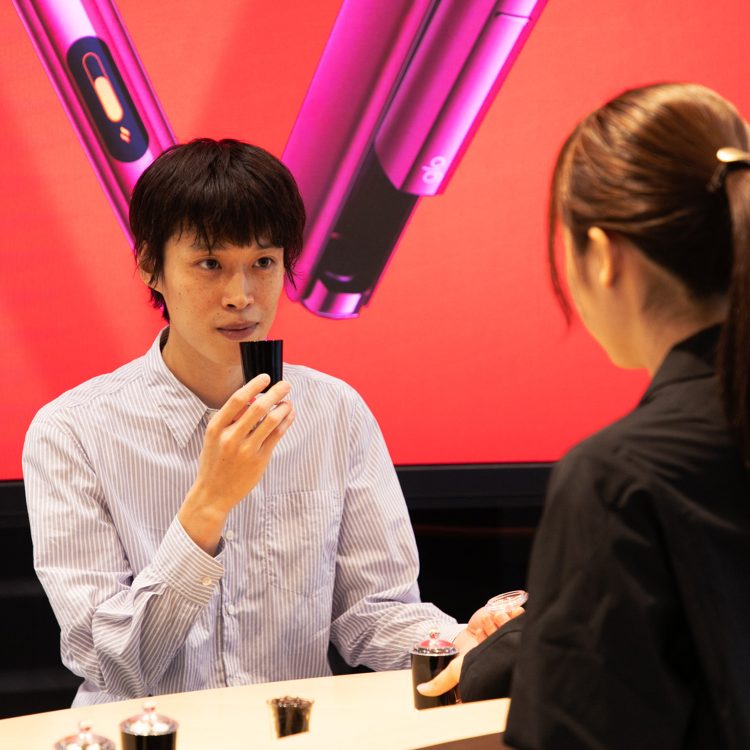ファッション
STRATEGIES FOR STYLE/Jian DeLeon
text: W. David Marx
2022年1月31日
text: W. David Marx
translation: Rei Murakami (Alt Japan)
illustration: Dick Carroll
special thanks: Jian DeLeon
In the February 2022 issue of Popeye, W. David Marx wrote an article entitled “STRATEGIES FOR STYLE “ which introduced seven style icons and their particular strategies for achieving “good” taste. In this special bilingual version of the article, we introduce three of the style icons.

EMOTION
In olden days the way to learn style was to absorb the wisdom of fathers, grandfathers, uncles, big brothers, and perhaps the occasional advice skimmed from fashion magazines. This was good for keeping alive the tradition of fashion, but tended to make good taste the exclusive privilege of a small community. To be stylish meant being born into a family or community that understood how to dress. The Internet changed all of that. With the explosion of style blogs in the 2000s, a new generation grew up on clothing the way previous generations got into sports or TV shows.
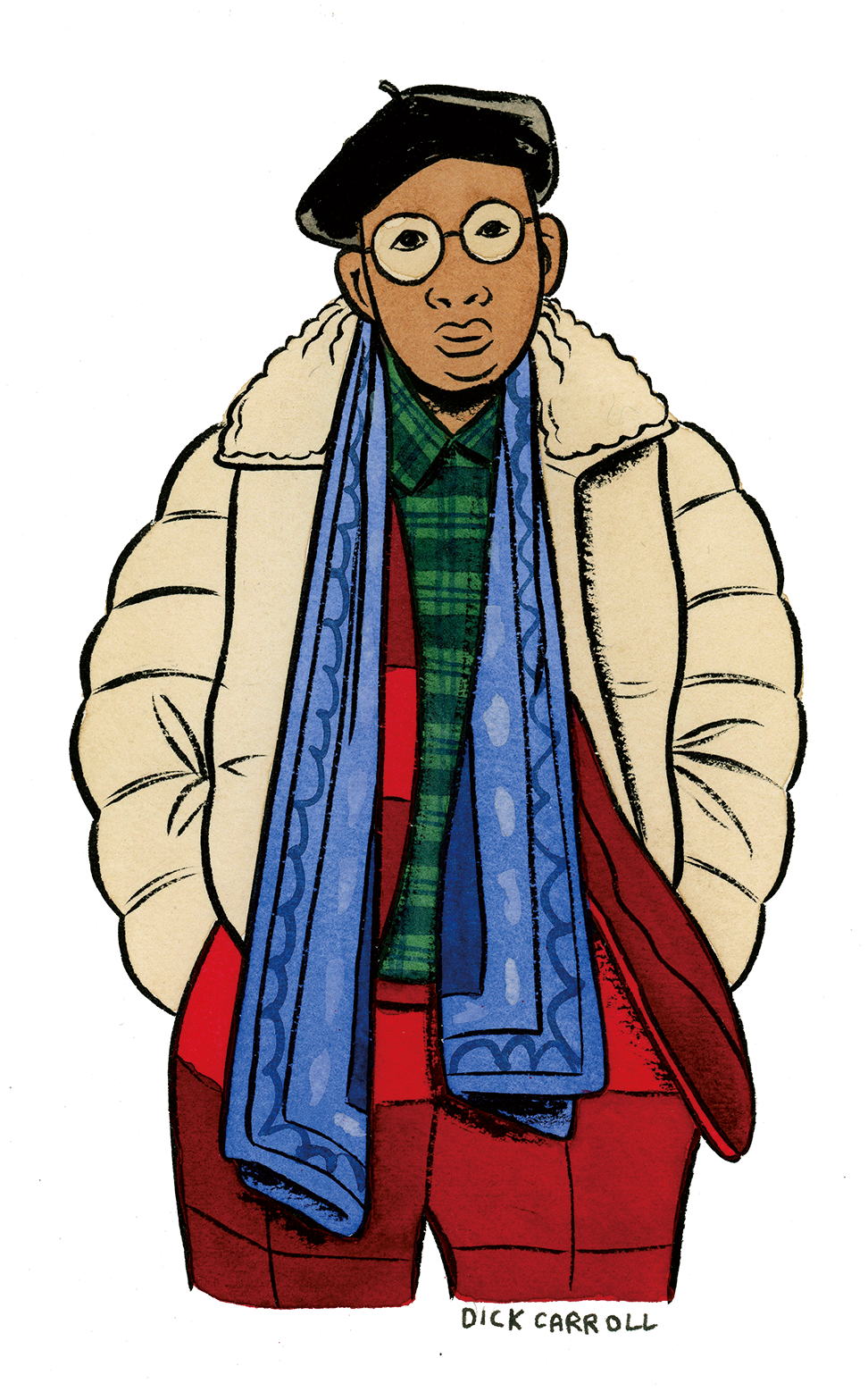
Jian DeLeon, a former editor at HighSnobiety and now Nordstrom Men’s Editorial and Fashion Director, is an exemplar of the 21st century style icon. Powered by an insatiable curiosity, he built up his knowledge of clothing from devouring everything online, observing the streets, learning from mentors, and thousands of days of trial-and-error. At first he was a writer and editor explaining the latest clothing; now he himself has become an icon for his vivid and creative outfits. And his style is related to the way this latest generation has learned about clothing: Getting dressed should be fun.
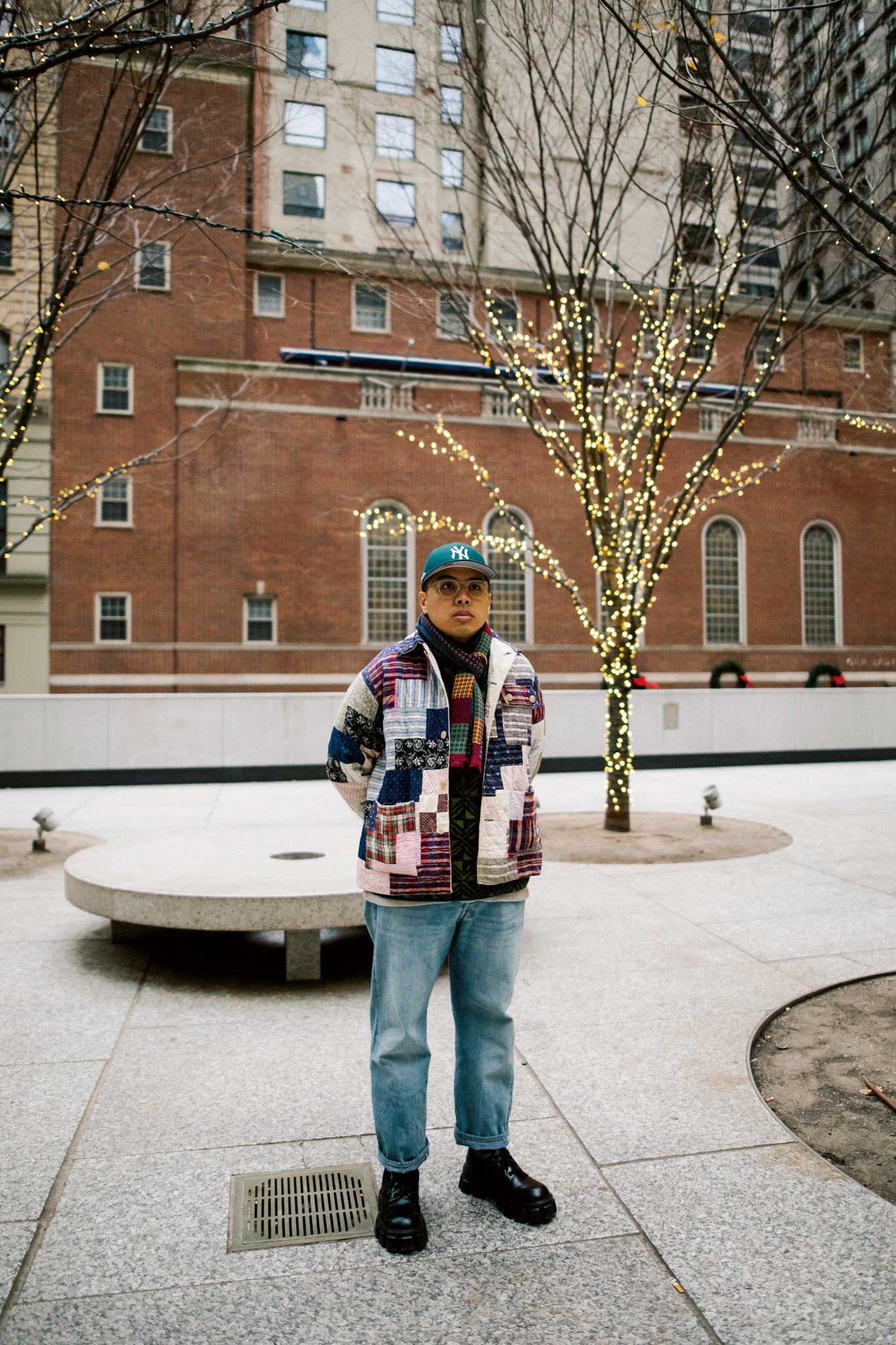
©CHRISTOPHER FENIMORE
But to call DeLeon’s style only “fun” is unfair. In his own words, he is an “emotional dresser”: He chooses outfits based on how he feels that day. And like all of us, he surely has bad days too. The reason it’s easy to summarize his looks as fun is that the final product is often fun for us, the spectators. He has such a vast knowledge of styles and garments past and present, that he can wield color, pattern, and material like a painter deciding how to express what’s in his head on a canvas.
Fashion is often explained as moves in a game with set rules: Socks should match the pants not the shoes, don’t wear button-down collars with a suit, necktie width should be the same as lapel width, etc. But now that fashion is for everyone, DeLeon shows how much freedom we have to bend those rules to our liking. Colorful patchwork jackets can go over sweaters with a clashing pattern and an additional clashing pattern in the scarf. Classic jeans balance out Holstein cow print Birkenstock mules. This may be the polar opposite of the Fran Lebowitz uniform approach and Margaret Howell’s simplicity, but it’s equally valid — and perhaps best suited for our current chaotic times.
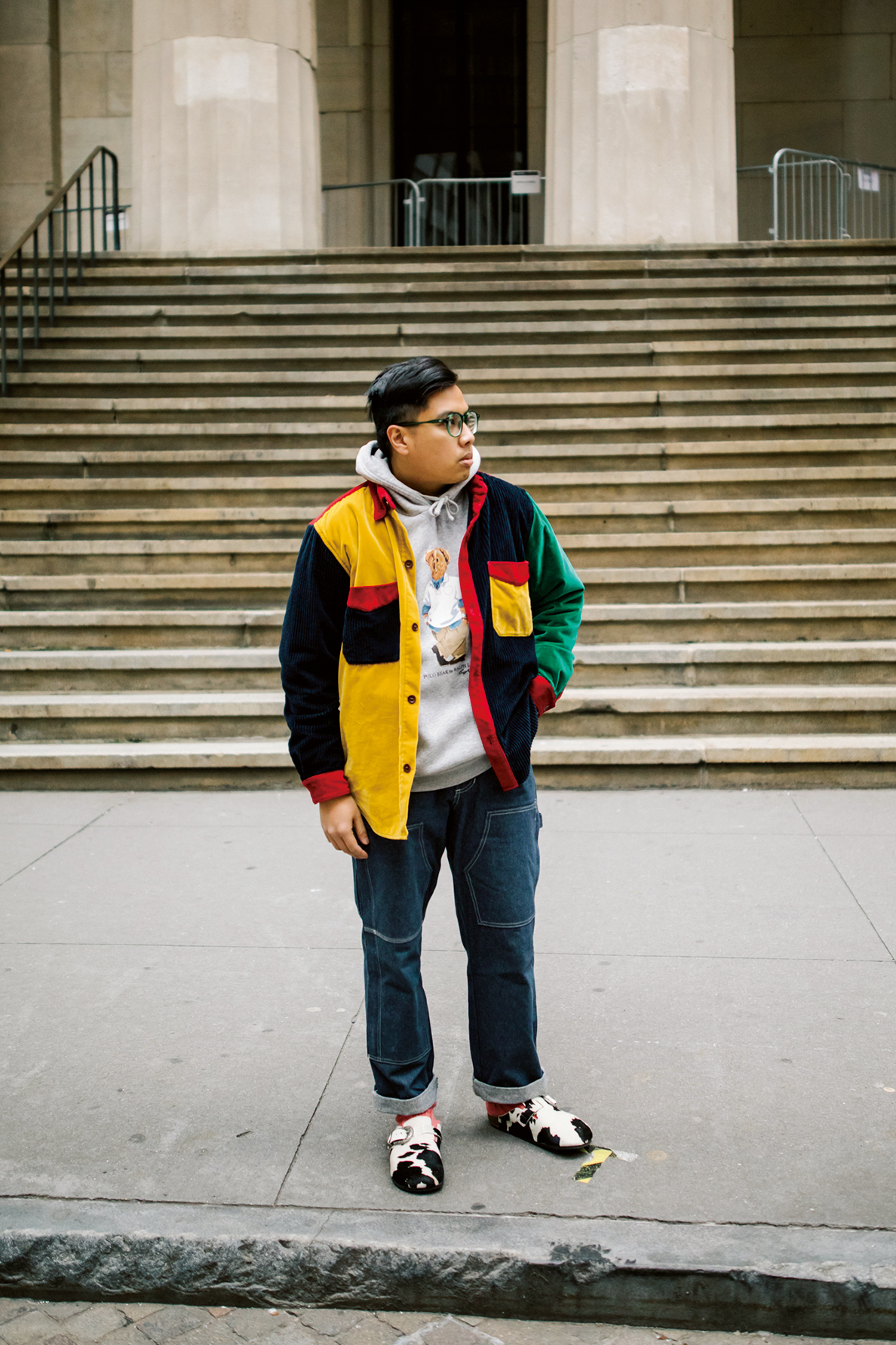
©CHRISTOPHER FENIMORE
DeLeon provides two useful concepts for thinking about clothing. First, human emotions are extremely complicated, and it’s best to express their complexity through a complicated combination of complicated garments. Second, all personal expression is limited by our mastery of the medium. DeLeon knows casual brands, streetwear, avant-garde design, and classic suiting, and he’s able to mix these ingredients together into memorable and inimitable combinations. Before we can successfully express our emotions, we have to learn all of the ingredients for expression.
Jian says “I don’t put too much thought into any outfit, I go by what feels right. ”
He send us some selfie of his recent outfit and comment on them.
-
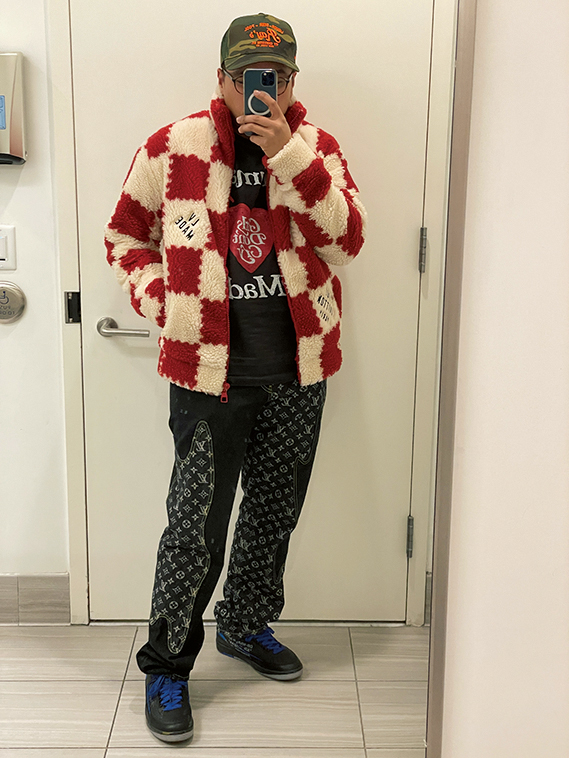
The fleece jacket and jeans are from LOUIS VUITTON’s LV² collection, a collaboration between NIGO® and Virgil Abloh.
“Nigo and Virgil Abloh are the most influential figures of my generation.”
©Jian DeLeon -
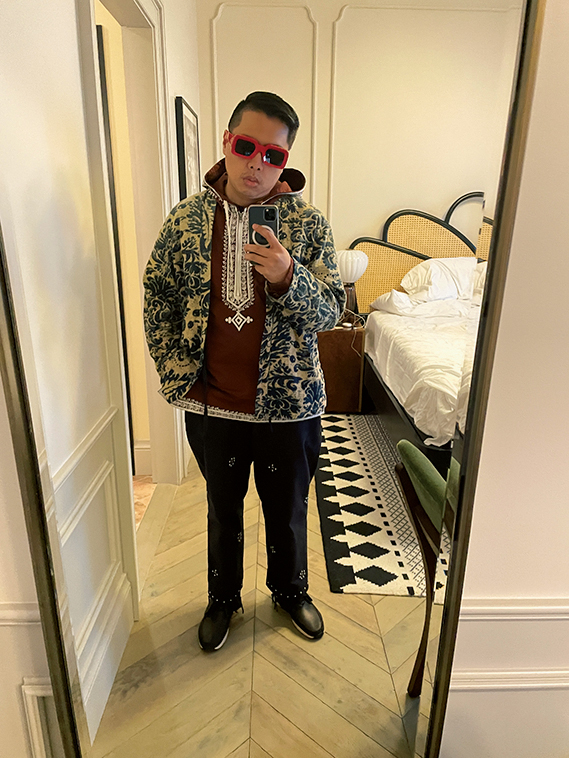
“I am a firm believer in regional style. Different cities inspire what I pack. This is what I call my ‘Los Angeles mode.'”
Over an anorak from 18 East, he layered a damask band shirt from Kapital.
©Jian DeLeon
-
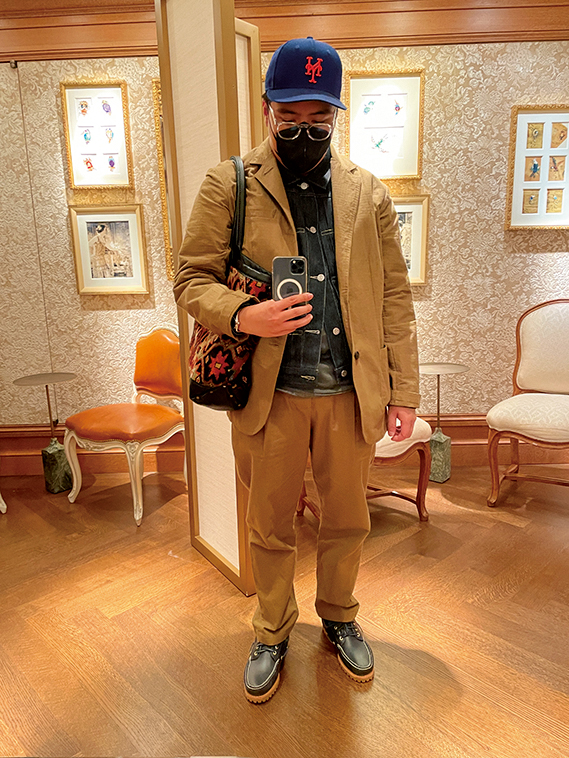
“The suit is from 18 East, a brand by my friend Antonio Ciongoli. When I complained about the fact that the pants only had one pocket, they came out with the Jian Pant, which has two pockets.”
©Jian DeLeon -
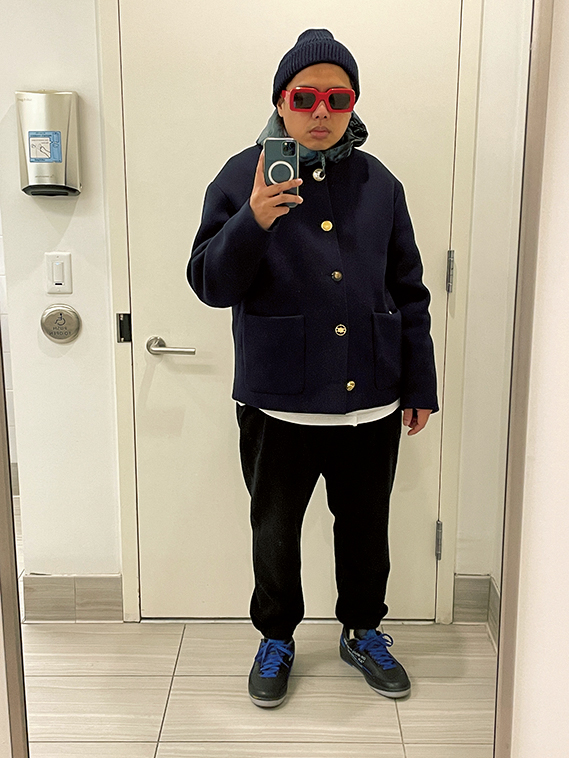
“The coat is from 4SDesigns which is one of my new favorite labels.. It follows the dress code of the upper class, but with irreverent details like mismatched buttons.”
©Jian DeLeon
PROFILE
Jian DeLeon
Editor and fashion director of “Nordstrom”. Born in the Philippines. He is the former editor-in-chief of “HIGHSNOBIETY”. He has written numerous articles on men’s fashion, including streetwear, sneakers, and high fashion, and was named a Young Influencer by “Adweek” in 2019.
AUTHOR’S PROFILE
W. David Marx
W. David Marx is a Tokyo-based writer. Born in Oklahoma, USA, and raised in Florida, he studied Japanese culture and society in college and later received his Master’s in consumer behavior from Keio University. His book on the history of Japanese menswear, “AMETORA: How Japan Saved American Style”, was published in the U.S. in 2015, and has sold over 50,000 copies worldwide. His new book, Status and Culture, will arrive from Viking Books in Late Summer 2022.

